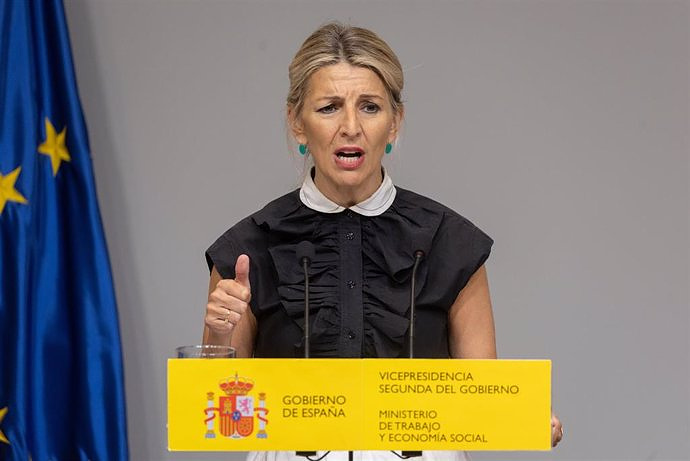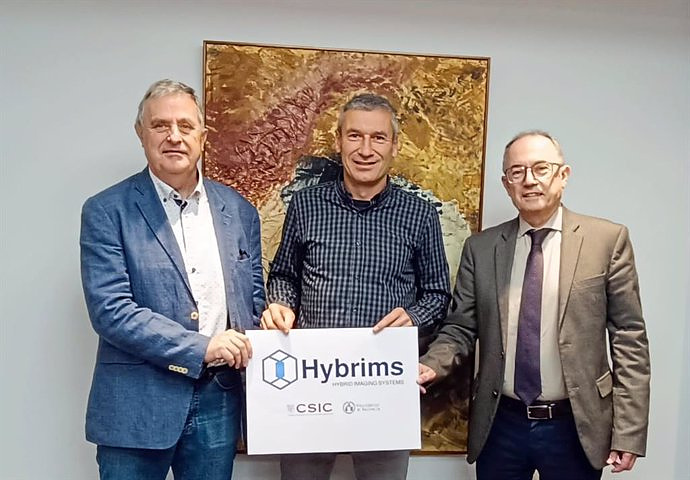SEVILLA, 30 Dic. (EUROPA PRESS) -
The Court of Seville continues this Friday, the last working day of the year, awaiting the receipt of the report issued by a coroner from the Institute of Legal Medicine on the serious illness alleged by the former socialist president of the Junta de Andalucía José Antonio Griñán , sentenced to six years and two days in prison for embezzlement in the financing mechanism of fraudulent employment regulation files (ERE), to decide whether or not to agree to his last request for suspension of the period authorized for his entry into prison.
While said period would expire on January 2, sources from the Superior Court of Justice of Andalusia (TSJA) have informed Europa Press that the First Section of the Seville Court is still waiting to receive said report, in which the expert forensic appointed by the Institute of Legal Medicine must assess "whether the admission to a prison" of the former Andalusian president "could have an impact on the development of the disease or on the prescribed treatment."
Specifically, after the First Section of the Hearing dismissed Griñán's appeal against the initial denial of his request to suspend the period of voluntary imprisonment, the defense of the former president alleged that he had been diagnosed with a serious illness, claiming accordingly, suspend said term.
In view of this, and once the medical documentation provided by Griñán's representation had been seen, the First Section of the Hearing ordered that a coroner from the Institute of Legal Medicine examine the documentation and make an examination of Griñán if necessary, so that he could issue a report "assessing whether admission to a prison could have an impact on the development of the disease or on the prescribed treatment".
This, after the former Deputy Minister of Employment Agustín Barberá, also sentenced to prison, put forward similar arguments and the Court agreed to temporarily suspend the execution of his prison sentence, pending a report on his condition.
On the other hand, the former Minister of Finance Carmen Martínez Aguayo, also sentenced to six years and two days in prison, has already entered a prison to begin serving her sentence.
Recently, the First Section of the Court of Seville dismissed the appeals of the former socialist president of the Junta José Antonio Griñán, the former Minister of Finance Carmen Martínez Aguayo, the former Minister of Innovation Francisco Vallejo, the former Minister of Employment and Technological Development José Antonio Viera Antonio Fernández, also a former Employment Minister, Agustín Barberá, former Deputy Minister of Employment, Miguel Ángel Serrano, former director of the IDEA agency, and Jesús María Rodríguez Román, former Vice Minister of Innovation; against the order dated November 15, in which this judicial instance already denied the initial requests for suspension of the prison sentences that weigh on them.
Such requests for suspension of prison sentences were mainly based on requests for partial pardon submitted by those convicted to the Ministry of Justice and the motions for nullity filed before the Supreme Court, which, in response to its appeals against the initial conviction of the First Section, of the Court, fully confirmed the aforementioned prison sentences except in the case of former Labor Director Juan Márquez, with respect to whom he reduced the prison sentence from seven years and one day in prison to three years, when appreciating the analogical mitigation of reparation of the damage.
Griñán's defense, specifically, requested an extension of "three months" in the ten-day period set for his voluntary entry into prison, to "avoid compliance (of the prison sentence) that could be unsuccessful, improper, unnecessary or unfair". "Because what is undeniable is that if the partial pardon were granted or the nullity question for which the reduction of the sentence to two years is considered, the imprisonment that is ordered would be unsuccessful, improper or inadmissible, that is to say , unnecessary",
Within this framework, in the order that is the object of these appeals against the denial of the requests for suspension of the prison sentences of the convicted persons, the First Section of the Hearing admitted "the lack of criminal records of the convicted persons", but for Another part pointed out "the seriousness and length of the penalties, which prevents the suspension of the execution of the sentence in all the forms included in article 80 et seq. of the Penal Code, which is why all of them have requested the suspension of the execution while the pardon is being processed".
"There is no circumstance that advises the suspension of the sentence by petition for pardon", summed up the magistrates, who also pointed out, with respect to the incidents of annulment raised before the Supreme Court by the defenses, that "in no way can the presentation of the incident give rise to the suspension of the execution of the custodial sentences imposed in a final judgment", since this "would imply a violation of the precepts that regulate the suspension of the execution of the sentences and the effective fulfillment of the same".
As for Juan Márquez, sentenced to three years in prison, the panel argued that "his situation is different, the sentence being three and four years less than that of the rest, which together with the lack of a criminal record and objective reasons that determined a quantitative penological reduction in the sentence handed down by the TS, are circumstances to be taken into account so that it proceeds, for a prudential time of one year, to the suspension of the execution of the custodial sentence while the pardon is being processed" .
In this sense, in response to the appeals of Griñán, Martínez Aguayo, Francisco Vallejo, José Antonio Viera, Antonio Fernández, Agustín Barberá, Miguel Ángel Serrano and Jesús María Rodríguez Román; The Court stated in its new order that they "raise issues already resolved in the appealed order and there is no data or circumstance that allows the resolution issued to be amended", which "sufficiently substantiates the denial of the suspension" of the prison sentences.
"Not in vain, the duration of the trial sessions lasted for a year, given the complexity of the matter, in addition to the time necessary for the drafting of the sentence", the magistrates highlighted in their new order, concluding that "the course of the time is not a reason for granting the requested suspension" and thus ratifying the contested order.
Although the court dismissed the appeal of the former Deputy Minister of Employment Agustín Barberá, it did agree to suspend his imprisonment until the suspension of the execution of the sentence requested by his defense is processed based on article 80.4 of the Penal Code, related to the case. that the prisoner is suffering from a very serious illness with incurable conditions, pending a report by the forensic doctor.
Thus, finally, the court required all those sentenced to prison, except Barberá, so that within a period of ten days that would end on January 2, they "voluntarily enter" prison, an extreme undertaken this past Wednesday by the former Minister of Finance Carmen Martínez Aguayo, who was already entering the Alcalá de Guadaíra women's prison to serve her sentence of six years and two days in prison.

 Exploring Cardano: Inner Workings and Advantages of this Cryptocurrency
Exploring Cardano: Inner Workings and Advantages of this Cryptocurrency Seville.- Economy.- Innova.- STSA inaugurates its new painting and sealing hangar in San Pablo, for 18 million
Seville.- Economy.- Innova.- STSA inaugurates its new painting and sealing hangar in San Pablo, for 18 million Innova.- More than 300 volunteers join the Andalucía Compromiso Digital network in one month to facilitate access to ICT
Innova.- More than 300 volunteers join the Andalucía Compromiso Digital network in one month to facilitate access to ICT Innova.-AMP.- Ayesa acquires 51% of Sadiel, which will create new technological engineering products and expand markets
Innova.-AMP.- Ayesa acquires 51% of Sadiel, which will create new technological engineering products and expand markets Dortmund storms Paris and reaches the final
Dortmund storms Paris and reaches the final Cos bids farewell to Congress warning that the lack of political consensus "affects economic prospects"
Cos bids farewell to Congress warning that the lack of political consensus "affects economic prospects" Two workers died and one injured when two floors collapsed in a building under construction in Fuencarral
Two workers died and one injured when two floors collapsed in a building under construction in Fuencarral The Government will wait until after the European elections to propose measures on democratic regeneration
The Government will wait until after the European elections to propose measures on democratic regeneration How Blockchain in being used to shape the future
How Blockchain in being used to shape the future Not just BTC and ETH: Here Are Some More Interesting Coins Worth Focusing on
Not just BTC and ETH: Here Are Some More Interesting Coins Worth Focusing on They develop devices for the precise diagnosis of cancer patients
They develop devices for the precise diagnosis of cancer patients UMH researchers are working on a high-quality apricot crop that requires less irrigation water
UMH researchers are working on a high-quality apricot crop that requires less irrigation water The UPV develops an application to improve the quality of life of patients with glioblastoma
The UPV develops an application to improve the quality of life of patients with glioblastoma A sensor system obtains the fingerprint of essential oils and detects if they have been adulterated
A sensor system obtains the fingerprint of essential oils and detects if they have been adulterated A million people demonstrate in France against Macron's pension reform
A million people demonstrate in France against Macron's pension reform Russia launches several missiles against "critical infrastructure" in the city of Zaporizhia
Russia launches several missiles against "critical infrastructure" in the city of Zaporizhia A "procession" remembers the dead of the Calabria shipwreck as bodies continue to wash up on the shore
A "procession" remembers the dead of the Calabria shipwreck as bodies continue to wash up on the shore Prison sentences handed down for three prominent Hong Kong pro-democracy activists
Prison sentences handed down for three prominent Hong Kong pro-democracy activists ETH continues to leave trading platforms, Ethereum balance on exchanges lowest in 3 years
ETH continues to leave trading platforms, Ethereum balance on exchanges lowest in 3 years Investors invest $450 million in Consensys, Ethereum incubator now valued at $7 billion
Investors invest $450 million in Consensys, Ethereum incubator now valued at $7 billion Alchemy Integrates Ethereum L2 Product Starknet to Enhance Web3 Scalability at a Price 100x Lower Than L1 Fees
Alchemy Integrates Ethereum L2 Product Starknet to Enhance Web3 Scalability at a Price 100x Lower Than L1 Fees Mining Report: Bitcoin's Electricity Consumption Declines by 25% in Q1 2022
Mining Report: Bitcoin's Electricity Consumption Declines by 25% in Q1 2022 Oil-to-Bitcoin Mining Firm Crusoe Energy Systems Raised $505 Million
Oil-to-Bitcoin Mining Firm Crusoe Energy Systems Raised $505 Million Microbt reveals the latest Bitcoin mining rigs -- Machines produce up to 126 TH/s with custom 5nm chip design
Microbt reveals the latest Bitcoin mining rigs -- Machines produce up to 126 TH/s with custom 5nm chip design Bitcoin's Mining Difficulty Hits a Lifetime High, With More Than 90% of BTC Supply Issued
Bitcoin's Mining Difficulty Hits a Lifetime High, With More Than 90% of BTC Supply Issued The Biggest Movers are Near, EOS, and RUNE during Friday's Selloff
The Biggest Movers are Near, EOS, and RUNE during Friday's Selloff Global Markets Spooked by a Hawkish Fed and Covid, Stocks and Crypto Gain After Musk Buys Twitter
Global Markets Spooked by a Hawkish Fed and Covid, Stocks and Crypto Gain After Musk Buys Twitter Bitso to offset carbon emissions from the Trading Platform's ERC20, ETH, and BTC Transactions
Bitso to offset carbon emissions from the Trading Platform's ERC20, ETH, and BTC Transactions Draftkings Announces 2022 College Hoops NFT Selection for March Madness
Draftkings Announces 2022 College Hoops NFT Selection for March Madness
























